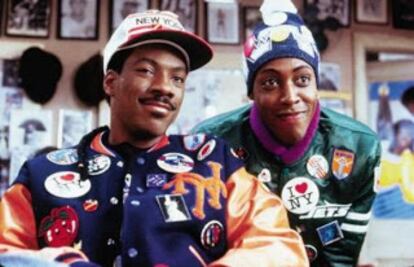Accent… and the doors it can open

Por Edwige Renée Dro (*)
I first learned that I had an accent when I went to university in England. I also learned that an accent was a bad thing to have. It was the way the question, “Where is your accent from?” was asked, with pursed lips and a frown, as if this thing called “accent” was grating on my interlocutors’ ears. And I felt bad about it, even if I too wondered about their way of speaking, which was different from the way the white people – the English people – spoke. Yes, for the people who went to great length to point out my accent in such a way were my fellow black British students.
I’m now older, so I will admit to it. I tried to acquire this black British accent especially as a deafening silence would fall and every eye would focus on me as soon as I opened my mouth. I’m sure I saw ears stood to attention as well to catch every word. So yes, the acquisition of the right accent was a paramount affair. No point sounding like this; this was the aim, especially as other friends, other Africans like me could switch from this to this without a second’s hesitation. Well, I never succeeded for this is how I sound. No black British accent there! By the way, I know there isn’t something called a black British accent, let me hasten to add.
Of course, I’m now glad I did not persevere with the accent change, and I’m also glad for the confidence that comes with age for just a year before joining the great returnee movement, a friend of mine, an Ivorian who’d self-styled himself as my older brother told me, “Your grammar is great and your vocabulary is tremendous but the problem is your accent.”
“What’s up with my accent?” I asked, even though I knew what he was about to say.
“You have an African accent.”
“And what is an African accent?” I further challenged him, even though with that sentence, he’d enlightened me as to the provenance of his affected British? English? hybrid? accent? And also, I had to ask. Who knew? Perhaps while I had been going around thinking that Africa was a continent, it had become a country and the joke was on me. Who knew that a Moroccan sounded the same as a South Arican, hein?
“Well, you know,” self-styled older brother told me, “when you speak, you sound like an African, and that puts you at a disadvantage.”
No shit! “So what do you suggest?”
“Listen to videos of Americans speaking. That’s what I did when I came to this country.”
Wow! So the affected accent was actually an American accent. Dear God, Africans have suffered. But I had reached my limit; I was no longer prepared to humour self-styled brother. I launched into a diatribe the only way a soon-to-be returnee could.
What the comment of self-styled brother confirmed to me however was that my decision to return was the best decision I had ever taken. Before I gave in to the self-hatred that the West had inflicted on self-styled brother, I would go back to Cote d’Ivoire where I wouldn’t be confronted with the question of accent. Pah!
Maybe someday, I will write an article called The delusions of an African returnee, but until then, let’s talk about my journey back home and the many mentions of my accent. Since when did my people know about accent? I asked myself. I became everything but an Ivorian. I was a Congolese. A Cameroonian. A Nigerian. A Liberian. Even a Rwandan! The bank asked for my consular card to open my current account and upon me exclaiming that I was an Ivorian, the manager simply tilted his head and said, “Ah bon?” In places where I had to show my passport, it was assumed that it was my father who was the Ivorian, if they didn’t just think that it was my husband who was the Ivorian. In a taxi once, there was a passenger who jerked his head as soon as I gave my destination to the taxi driver before exclaiming, “But you, you are not from here!”
Contrary to the inadequacy I felt whenever my accent was mentioned when I was still at university, this time, I decided to have myself some fun. Age will do that for you. I had realised that saying, “Je suis Ivoirienne de père et de mère eux-mêmes nés de pères et de mères Ivoiriens” in reference to the Ivoirité definition like I replied back to that passenger, made people clam up really quickly. And as a true returnee who was desperate for a conversation devoid of suspicion regarding the sad political crisis my country went through, showing off my knowledge, a thorough knowledge at that of the Ivoirité concept wasn’t going to get me anywhere. So I adopted a different strategy. Unless totally necessary, I let people assume and I asked questions. I offered alternative views. I wondered aloud about Gbagbo’s legacy without being thought to be one of those people, ADO’s people. I expressed sadness at the way President Gbagbo was paraded in front of the TV screens of the world without anyone deciding that I could only be but a pro-Gbagbo. I would mention that I was learning to speak Dioula (a language I speak very well by the way) without being asked if I was sure that I didn’t have a soft spot for ADO, as our current president is called. Instead, I was simply viewed as a Benguiste, a returnee fascinated by a foreign country. Even when it was correctly guessed that I was an Ivorian, the suspicion that so pervades conversations pertaining to politics in my country does not apply to me, even if the straight-forwardness when it is assumed that I’m a foreigner is tempered a little bit.
Comme quoi hein, having an accent, even if you are unaware of having one like me here, doesn’t put you at a disadvantage. It actually opens doors, the doors of people’s hearts. I’m now wondering what to do with all that information…..
(*) Edwige Renée Dro es marfileña. Periodista, escritora, traductora, bloguera y pluma seleccionada por el proyecto Africa39 como uno de los 39 mejores escritores menores de 40 años en África subsahariana. Dirige un club de lectura en Abiyán, centrado en literatura africana y denominado Abidjan Lit (Abiyán lee), y forma parte de incontables proyectos de creación y difusión literaria panafricanos. Lo suyo es el 'writivism', una mezcla de escritura y activismo.
Tu suscripción se está usando en otro dispositivo
¿Quieres añadir otro usuario a tu suscripción?
Si continúas leyendo en este dispositivo, no se podrá leer en el otro.
FlechaTu suscripción se está usando en otro dispositivo y solo puedes acceder a EL PAÍS desde un dispositivo a la vez.
Si quieres compartir tu cuenta, cambia tu suscripción a la modalidad Premium, así podrás añadir otro usuario. Cada uno accederá con su propia cuenta de email, lo que os permitirá personalizar vuestra experiencia en EL PAÍS.
¿Tienes una suscripción de empresa? Accede aquí para contratar más cuentas.
En el caso de no saber quién está usando tu cuenta, te recomendamos cambiar tu contraseña aquí.
Si decides continuar compartiendo tu cuenta, este mensaje se mostrará en tu dispositivo y en el de la otra persona que está usando tu cuenta de forma indefinida, afectando a tu experiencia de lectura. Puedes consultar aquí los términos y condiciones de la suscripción digital.




























































